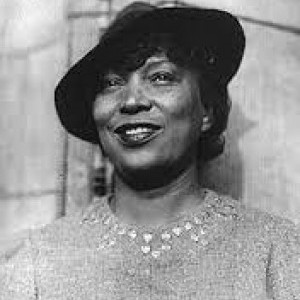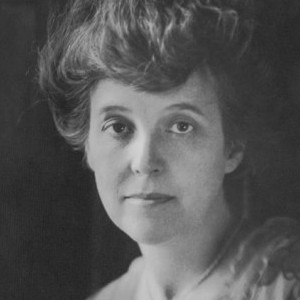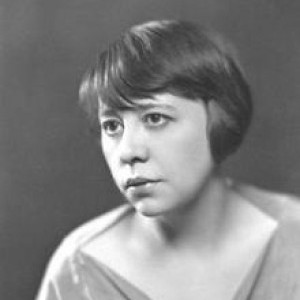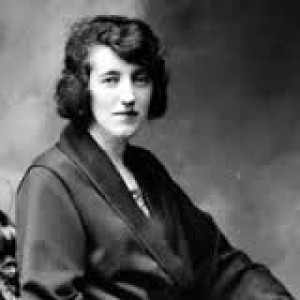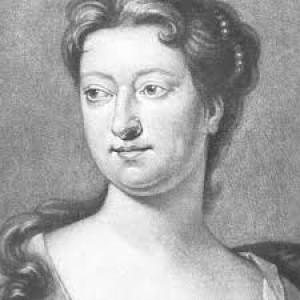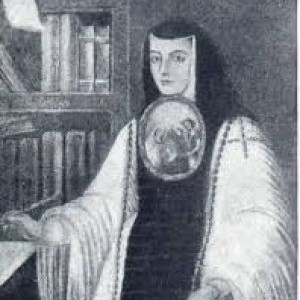Elizabeth Robins
Biography

Elizabeth Robins (1862-1952)
Known as “Lisa of the blue eyes,” American-born Elizabeth Robins lived over half of her life in England and was a member of the London intelligentsia; she was friends with George Bernard Shaw, Oscar Wilde, Henry James, and—towards the end of her life—Virginia and Leonard Woolf. Influenced by her American roots, the English literary elite, and her many roles as Ibsen’s heroines, Robins had a very successful career as an actress (both in the United States and England), a novelist, and a playwright; Among her most famous works is her play Votes for Women! (1907), which brought the street politics of the English suffrage movement to the stage, and The Magnetic North (1904), a novel inspired by her search for her brother who had gone missing in Alaska. Votes for Women! is not her only play, but it is the only play by Robins that has been produced on stage. Shortly after her death, Robins fell into obscurity.
Robins, born in Kentucky during the the Civil War, lived out her childhood on Staten Island before moving to her grandmother’s home in Zanesville, Ohio, at the age of ten.[1] She was known as “Bessie,” and—ever the troublesome girl—childhood friends recalled her being an avid prankster, once even throwing a Sunday school book down the toilet.[2] She was educated at Putnam Female Seminary, where she studied arithmetic, geography, reading, and spelling. Much to her father’s displeasure, Robins—through her school friends—developed a love for the novel and the stage; she was featured prominently in school recitals and is praised in the local newspaper for her role in Hamlet. Robins knew by age fourteen that she wanted to be a professional actress.[3]
After living under her father’s thumb for several years, Robins moved to New York City in 1881. In the autumn, thanks to James O’Neill—“my useful dramatic friend”—who was boarding in the same house as Robins, she booked her first role as a nun in The Two Orphans by Adolphe d’Ennery and Eugène Cormons. By January, 1882, she was on tour. She continued her acting career in the United States with O’Neill, enduring continual objections from her family (her father once walked out of a performance of The Count of Monte Cristo, where Robins was playing Mercedes),[4] and in 1888 she traveled to England, where she began booking roles in London with commercial theatres.[5]
During her career in London, Robins became associated with Henrik Ibsen’s plays. Her first Ibsen role was Mrs. Linden in A Doll’s House,[6] and she was the first actress to play Hedda Gabler and Hilda Wangel in English.[7] Despite playing various roles in commercial theatre settings, Robins became frustrated with the actor-manager system and found that non-commercial theatres were a better outlet for her talent. She worked closely with the independent theatre movement, and with the Independent Theatre in London itself, organizing several series which made possible the production of Ibsen’s Little Eyolf (performed in 1896) and Mariana (performed in 1897) in London.[8]
In addition to her career as an actress, during the 1890s Robins began writing novels under the pseudonym “C.E. Raimond,” but her true identity was disclosed in the press soon after the publication of Bildungsroman, The Open Question, in 1898. She owned up to the pseudonym and continued writing until her death, pursuing more and more diverse writing projects.[9]
Robins retired from the stage at the turn of the century, focusing on her writing career and the growing suffrage movement in England. When the Women’s Social and Political Union (WSPU), an organization led by Emmeline Pankhurst and her daughters, moved from Manchester to London, Robins attended the outdoor rallies in Trafalgar Square “out of shamefaced curiosity.”[10] In 1906, she became a member of the WSPU national committee, lending her voice and making public speeches calling for feminist political action, but her commitment to the Union was limited. . However, it is during this time that Robins penned Votes for Women! (1907), which brought the street politics of “the cause” to the English stage and opened the door for many more suffrage plays; she then wrote her novel The Convert (1907), an adaption of Votes for Women!. Christabel Pankhurst often begged her to contribute more to the suffrage movement, but Robins refused. She eventually broke with WSPU and Emmeline Pankhurst because of their increasing militancy.[11]
Her break with WSPU didn’t end Robins’ involvement with the suffrage or women’s rights movements. She was the president of the Women Writers’ Suffrage League (WWSL), which was founded by Cicely Hamilton and Bessie Hatton in 1908,[12] and her novels were always some form of feminist critique. In 1924, she published Ancilla’s Share: An Indictment of Sex Antagonism which, besides Votes for Women!, is probably Robins’ most famous treatise against patriarchal society.[13]
Robins died on May 8th, 1952 in Brighton, England. In 1960, a commemorative plaque was placed at her estate in Sussex, called Backsettown, stating: “Elizabeth Robins 1862-1952 Actress-Writer lived here.”[14]
[1] John, Angela V. Elizabeth Robins: Staging a Life: 1862 - 1952. London: Routledge, 1995., 15-16
[2] Ibid., 2
[3] John, Angela V. Elizabeth Robins: Staging a Life: 1862 - 1952. London: Routledge, 1995., 18
[4] Ibid., 15-18
[5] Gates, Joanne E. Modern Drama by Women, 1880s-1930s: An International Anthology. Edited by Katherine E. Kelly. London: Routledge, 1996., 108
[6] Joannou, Maroula. ""Hilda, Harnessed to a Purpose": Elizabeth Robins, Ibsen, and the Vote." Comparative Drama 44, no. 2 (2010): 179-200. doi:10.1353/cdr.0.0110., 179
[7] John, Angela V. Elizabeth Robins: Staging a Life: 1862 - 1952. London: Routledge, 1995., 2
[8] Gates, Joanne E. Modern Drama by Women, 1880s-1930s: An International Anthology. Edited by Katherine E. Kelly. London: Routledge, 1996., 108
[9] Gates, Joanne E. Modern Drama by Women, 1880s-1930s: An International Anthology. Edited by Katherine E. Kelly. London: Routledge, 1996., 108-109
[10] Joannou, Maroula. ""Hilda, Harnessed to a Purpose": Elizabeth Robins, Ibsen, and the Vote." Comparative Drama 44, no. 2 (2010): 179-200. doi:10.1353/cdr.0.0110., 183
[11] John, Angela V. Elizabeth Robins: Staging a Life: 1862 - 1952. London: Routledge, 1995., 3
[12] Ibid., 153
[13] Gates, Joanne E. Modern Drama by Women, 1880s-1930s: An International Anthology. Edited by Katherine E. Kelly. London: Routledge, 1996., 110
[14] John, Angela V. Elizabeth Robins: Staging a Life: 1862 - 1952. London: Routledge, 1995., 1



